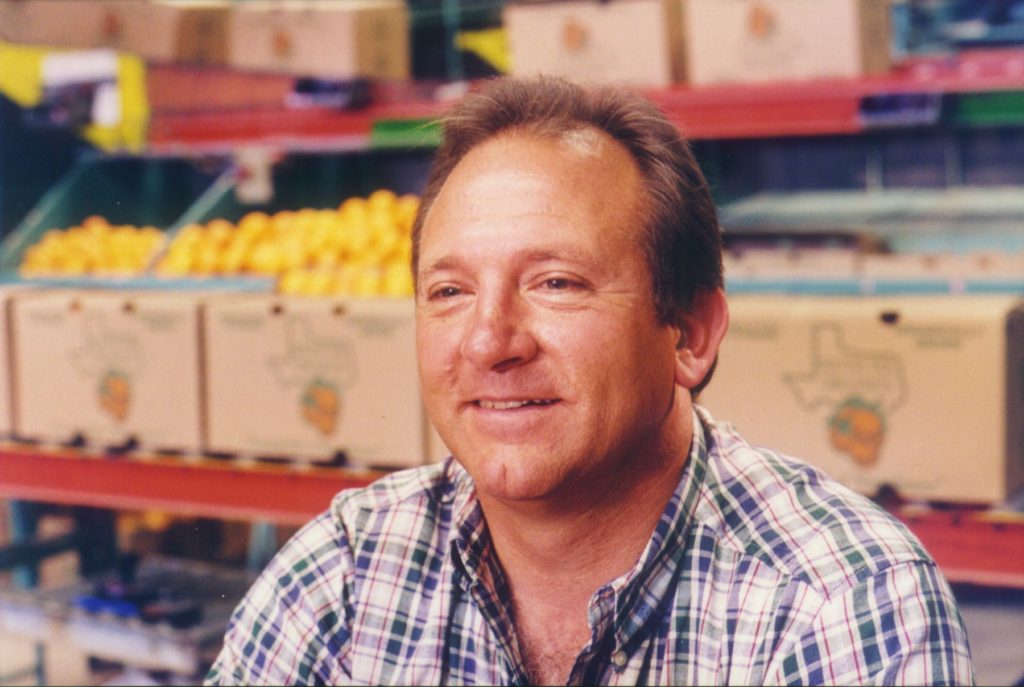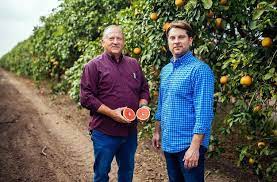
Texas Organic Label part 4
Dennis Holbrook was appointed by Hightower to the Texas Organic Advisory Board that Dan Kelley was assembling that would craft a Texas Organic Label. We talked about that process in the previous blog.
Holbrook has farmed organic in South Texas for over 40 years. Holbrook is a bit of a legend in Texas organic circles. He has a story to tell that should be heard by all those people who eat food, which is..duh…everyone, and by all those people who grow food.
“Forty years is a long period of time, lots has transpired over that time period, but life is good. We’ve grown and been successful in the organic industry and I feel really blessed.”
Holbrook started the transition to organic and sustainable and pesticide free agriculture about the time that Hightower took office.
This is from an interview that Holbrook gave PHIT in 2020 for our Hightower Legacy Project.
“I believe that was the early part of 1983 when he took office. At the end of that year we had our first major freeze in over 20 years in 1983, which devastated the industry. We lost over 50% of the producing citrus because of the freeze that was never replanted. The industry took a big hit. Prior to that, in ‘81 and ‘82, we had the second and third largest grapefruit crops ever grown in Texas. We were basically giving our fruit away, selling grapefruit for $15 a ton. Now you pay $15 for a single 40-pound box. We were economically devastated because we were not even making a return on our growing costs let alone anything on our investment.
“At that point I had begun looking into alternative growing methods. There were a lot of things going on in my life at the time. I was approached by representatives from Texas Tech University, asking to allow my employees to participate in a blind study of agricultural workers. They were testing for pesticide residues, and they were not having a great deal of success or luck in getting participation from a lot of the farmers here. But I told them, ‘Look, I’ll participate in the study, let you test my employees, if you test me as well.’ And the reason for that was that from the time I was a small kid, probably about the time I was 11 or 12 years old, I was driving spray rigs in the summertime for my father’s company. When I was a senior in high school, I worked for a crop duster and I was basically the chemical mixer. I mixed up all the formulations that went in the airplane. So, I wanted to get an idea where I was on the scale. The only result I got back was my own. They sent a letter six months later and indicated that I was in the upper 90 percentile of pesticide residues. So that created some concern, obviously.”
Holbrook had come to the realization that the modern methods of growing produce were lacking in not only sustainability but common sense.
“I had purchased the grove management company from my father in 1977 and was moving forward in growing the business. We were finding a lot of cultural practices that were difficult at the time. Fertilizer applications needed to be applied more frequently to maintain fruit growth. Irrigations applications were more frequent than they were just 20 years prior to that, before the prevalent use of herbicides. Back when I was a kid, in the early 1960’s we used to irrigate 4-5 times a year. There would be a complete weed growth, and all that vegetation was turned back into the soil as a means of green manuring that replenished the organic matter. By the early ‘80s after 20 years of herbicide use, we were irrigating on average of 7-8 irrigations annually. I started pulling soil samples and annualizing the results, I found that our organic matter content had been depleted so severely there really was not a whole lot in the soil. The highest organic matter content I had was 0.4, less than a half a percent, and it went down to the lowest point to 0.2, one fifth of a percent. All this kind of came together at the same time and I began looking at alternative growing methods. That’s how I got involved in looking seriously at organic production.”
In the beginning, Holbrook didn’t much care for Hightower or his policies.
“My first interaction with Commissioner Hightower, let me begin there. He took office I believe in 1983. Immediately he imposed some new regulations with the pesticide drift laws. I happened to be one of those individuals affected by the new regulations. At that time, I was still a conventional grower. I was also the chairman of the Texas Valley Citrus Committee, which is the governmental agency of USDA over the citrus industry, for grade and size requirements and so forth. As chairman, I was selected to be the voice of the industry in a meeting with Hightower concerning these new regulations. The situation unfolded like this, I had my insurance with Farm Bureau and I got a notification that they were no longer going to write the insurance that covered drift, because of the new regulations, so I was basically without insurance. We had this meeting, in the Texas Sweet building at that time in McAllen. So, there were the growers on one side of the table and Commissioner Hightower and his entourage with him on the other side of the table. Unfortunately, it really was quite a contentious meeting. That was the first interaction with Hightower, I was representing not only my position as a grower who was experiencing this difficulty but speaking on behalf of the industry. The bad thing about it was that insurance costs went from like $700 a year to like $2,400 a year. There was no justification for the insurance companies to increase their rates so high because nobody had had a problem, but everybody was just fearful. They thought ‘Oh, there’s gonna be all kinds of claims.’ It turned out in the long run, the regulations were not over impactful for the industry, it just was going to cut out a lot of negligence and people who perhaps were not doing the right thing. So that was my first exposure with Jim Hightower.”
But after that freeze in the winter of 1983 Holbrook decided to try the organic method
“When the 1983 freeze occurred, I decided that this was a perfect opportunity for me to kind of jump off the chemical merry go round and try something different. I took some of my own acreage along with a couple of my customers. As I said earlier, I had a grove management business that I had bought from my family. I got a couple of those growers involved and we started growing organically. Our first year we had no production after the freeze. It was the same year that Hightower and the TDA group put together the direct marketing conference. That turned out to be our second meeting, Commissioner Hightower was the keynote speaker at the event. I happened to be sitting at the table right in front of the podium. We spoke afterwards and he was a little surprised, I think, to see me there, based on our prior meeting. Over the years we got to be fairly friendly with one another and whenever I was in town, and had product, I made sure that he got some of our citrus. He seemed to enjoy that. That is how I got there, it went from conventional to organic to being integrated into the organic community with TDA. Based on that, Commissioner Hightower appointed me to serve on the first TDA Organic Advisory Board. I served on the Board through four different ag commissioners before I finally decided that it was time for me to move on to other things.”
.
Since Dennis began farming organically in 1984, he has become the largest organic citrus and vegetable grower in Texas, with over 500 certified acres. His product line currently consists of the famous Texas Rio Star grapefruit, several varieties of oranges, Meyer lemons, red and yellow onions.
Organic methods have drastically lowered his chemical costs, reduced his water use, restored soil health, produced a safer and more nutritious product for his customers, and created a better price value for his business.
.
